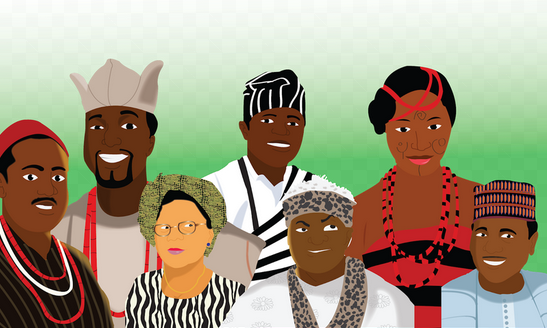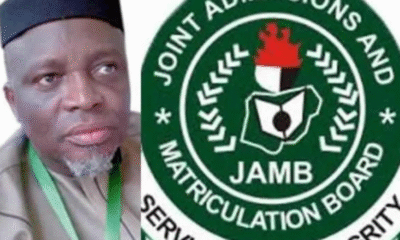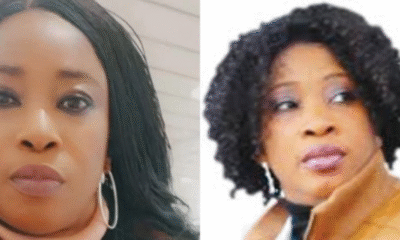EDUCATION
Top 10 Most Educated Tribes in Nigeria (2025 Ranking)
Published
10 hours agoon
By
Verified
10 Most Educated Tribes in Nigeria – See Who Tops the List
Nigeria is a country of rich cultural diversity and over 250 ethnic groups. While each tribe has unique traditions and values, some have stood out in terms of their embrace of formal education. Education is not just a tool for personal development—it’s a cultural priority in many Nigerian communities.
Based on credible statistics and social observations, here’s a list of the 10 most educated tribes in Nigeria and why they top the chart.
1. Yoruba
The Yoruba people are widely regarded as the most educated tribe in Nigeria. According to the 2021 Multiple Indicator Cluster Survey (MICS), 29.2% of Yoruba men and 22.3% of Yoruba women have attained tertiary education.
The Southwest region, where most Yoruba live, is home to some of Nigeria’s oldest institutions (e.g., University of Ibadan) and highest literacy rates.
2. Edo
Edo State ranks high in education, especially among women. 27.9% of Edo women and 28.7% of men have tertiary education—making them the top among women nationally.
Historically influenced by early contact with Western education, the Edo people have maintained a strong educational culture.
3. Igbo
The Igbo are known for their entrepreneurial spirit and love for education. About 26.1% of Igbo men and 27% of Igbo women have tertiary education, showing balance across genders.
Across the Southeast, there’s a deep-rooted belief in education as a path to social mobility and excellence.
4. Ijaw
The Ijaw people, predominantly from the Niger Delta, have made steady progress in higher education. With around 20% of Ijaw men and 12.8% of women holding tertiary degrees, they’re ahead of many other ethnic groups.
Despite environmental and economic challenges, the Ijaw community continues to prioritize learning.
5. Tiv
The Tiv tribe from the Middle Belt region of Nigeria records about 19.9% of men and 12.7% of women with tertiary education. Their increasing presence in academia and civil service highlights their growing investment in education.
6. Kanuri
Based mainly in the Northeast, the Kanuri tribe has overcome regional setbacks to rank among the top 10. 16.3% of Kanuri men and 7.7% of women have attained tertiary education, showing steady improvement over time.
7. Ibibio
Located in Akwa Ibom State, the Ibibio people show significant educational advancement. 16.3% of men and 18.3% of women in the tribe have tertiary qualifications.
The government’s investment in education and the people’s cultural value for learning are key contributors.
8. Hausa
The Hausa are one of Nigeria’s largest ethnic groups. While historically educational access has been uneven, recent years have seen improvements. 14.3% of Hausa men and 5% of women have tertiary education.
With expanding literacy programs, especially in Northern Nigeria, these numbers are expected to rise.
9. Fulani
Similar to the Hausa, the Fulani have historically faced education access challenges. However, 9.8% of Fulani men and 3.6% of women have attained tertiary education.
Cultural shifts and modern awareness are contributing to gradual progress in this area.
10. Urhobo / Itsekiri / Efik / Isoko
While smaller in population, these Southern tribes are often mentioned for their strong cultural embrace of education. Though exact stats vary, they feature prominently in regional academic achievements and professional excellence
Education remains a key factor in societal development, and these tribes have shown remarkable strides. The Yoruba, Edo, and Igbo dominate the list, not just in numbers but also in cultural orientation toward academic success.
As government efforts and private initiatives continue to improve access to education, more tribes across Nigeria are expected to join this list in the near future……CONTINUE READING
You may like
EDUCATION
See the Most Educated States in Nigeria (2025 Full List)
Published
1 week agoon
June 6, 2025
Education is pivotal to Nigeria’s development. In 2025, certain states have distinguished themselves through high literacy rates, numerous tertiary institutions, and low dropout rates. Based on data from the National Bureau of Statistics and UNICEF, here are the top 10 most educated states in Nigeria:……CONTINUE READING
1. Imo State
Literacy Rate: 96.43%
Tertiary Institutions: 7
Dropout Rate: 21%
Out-of-School Rate: 8%
2. Lagos State
Literacy Rate: 96.30%
Tertiary Institutions: 69
Dropout Rate: 27%
Out-of-School Rate: 23%
3. Ekiti State
Literacy Rate: 95.79%
Tertiary Institutions: 5
Dropout Rate: 25%
Out-of-School Rate: 9%
4. Rivers State
Literacy Rate: 95.76%
Tertiary Institutions: 6
Dropout Rate: 32%
Out-of-School Rate: 20%
5. Abia State
Literacy Rate: 94.24%
Tertiary Institutions: 9
Dropout Rate: 26%
Out-of-School Rate: 20%
6. Anambra State
Literacy Rate: 92.11%
Tertiary Institutions: 29
Dropout Rate: 28%
Out-of-School Rate: 19%
7. Osun State
Literacy Rate: 90.57%
Tertiary Institutions: 47
Dropout Rate: 38%
Out-of-School Rate: 24%
8. Edo State
Literacy Rate: 90.53%
Tertiary Institutions: 21
Dropout Rate: 24%
Out-of-School Rate: 21%
9. Enugu State
Literacy Rate: 89.46%
Tertiary Institutions: 33
Dropout Rate: 30%
Out-of-School Rate: 20%
10. Delta State
Literacy Rate: 97.43%
Tertiary Institutions: Data not specified
EDUCATION
How to Pass Government Recruitment Exams in Nigeria: Proven Preparation Tips
Published
2 weeks agoon
June 3, 2025
Government jobs in Nigeria are highly competitive, and most recruitment processes involve aptitude tests. Here are key steps to help you prepare and pass with confidence:
Understand the Exam Format
Most government exams include sections like English language, quantitative reasoning, current affairs, and general knowledge. Some may include technical or job-specific questions.Get the Right Past Questions
Look for verified past questions from the agency or ministry you’re applying to (e.g., NNPC, FIRS, NDLEA). Solving them helps you understand patterns and expected difficulty.Study with a Timetable
Create a daily reading schedule. Allocate time to different subjects—at least 1–2 hours a day. Consistency is better than cramming last-minute.Use Recommended Study Materials
Apart from past questions, use WAEC/UTME-level textbooks, logical reasoning workbooks, and apps like Pass.ng or Myschool CBT for practice.Practice Speed and Accuracy
Many exams are timed. Practice with a stopwatch. Learn to answer quickly and skip questions you don’t know to return later.Stay Updated on Current Affairs
Most exams test your awareness of local and global events. Read daily news, especially about Nigerian government policies, economy, and major appointments.Join Online Study Groups
Telegram, WhatsApp, and Facebook often have groups focused on government job prep. Members share materials, mock tests, and tips.Rest Well Before the Exam Day
A tired brain won’t perform well. Sleep early the night before and avoid overthinking. Arrive at the venue early with all required documents.Practice Interview Questions Too
If you pass the test, the next stage is often an interview. Start preparing answers for common questions like “Why do you want this job?” or “What value can you bring?”Stay Positive and Focused
Government recruitment is tough but not impossible. Believe in yourself and stick to your prep plan.
Thousands of candidates apply, but those who prepare smartly usually stand out……..CONTINUE READING
EDUCATION
You Can’t Have Two JAMB Results — The Old One Has Been Withdrawn
Published
3 weeks agoon
May 27, 2025The Joint Admissions and Matriculation Board (JAMB) has made it clear that no candidate can have two results. If a candidate receives an updated or corrected result, it automatically replaces the old one. This means the previous result is no longer valid and has been officially withdrawn…….CONTINUE READING
JAMB’s decision is part of its effort to maintain accuracy and integrity in the examination process. Candidates are advised to check the most recent result issued by the board, as that is the only one recognized for admission or record purposes.
Anyone trying to present both results will be disqualified, as it goes against the rules. If you’re unsure which result is valid, always refer to the latest one sent through JAMB’s official channels.CONTINUE READING
Trending

 Uncategorized3 weeks ago
Uncategorized3 weeks agoSilent Killer Diseases Every Woman Should Be Aware Of

 Uncategorized3 weeks ago
Uncategorized3 weeks agoEveryday Habits That Are Silently Destroying Your Health and Happiness

 EDUCATION3 weeks ago
EDUCATION3 weeks agoYou Can’t Have Two JAMB Results — The Old One Has Been Withdrawn

 Uncategorized3 weeks ago
Uncategorized3 weeks agoCommon Reasons People Die In Their Sleep

 Uncategorized3 weeks ago
Uncategorized3 weeks agoSurprising Diseases Linked to Skipping Your Night Shower

 Uncategorized3 weeks ago
Uncategorized3 weeks agoWhat Causes Painful Periods and How You Can Get Relief

 Uncategorized3 weeks ago
Uncategorized3 weeks agoSigns That Indicate Your Heart Is Not Working Properly

 ENTERTAINMENT3 weeks ago
ENTERTAINMENT3 weeks agoNollywood actress, Tolani Akintunde dies of heart attack in the UK

